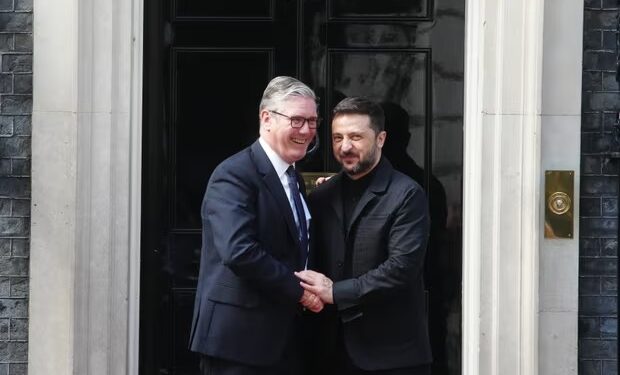The United Kingdom will commit to raising defence spending to 5% of GDP by 2035, Prime Minister Rishi Sunak announced on Monday, in what is being framed as the country’s most ambitious military investment pledge since the Cold War. The announcement marks a significant shift in Britain’s long-term strategic posture amid mounting global tensions and a renewed emphasis on hard power.
The proposed increase would nearly double current defence spending, which stands at around 2.3% of GDP. If realised, the target would place the UK among the world’s highest military spenders, rivalling even the most defence-heavy NATO members. The pledge includes plans for major investments in cyber capabilities, nuclear deterrence, space security, and conventional forces.
In a speech delivered at a military base in North Yorkshire, Sunak said the commitment reflected the scale of today’s threats and the necessity of securing the nation’s future. “We are entering a more dangerous, more volatile era. Peace must be preserved through strength,” he said, citing the ongoing conflict in Ukraine, instability in the Middle East, and the growing assertiveness of China.
The move has already stirred political debate. Supporters within the Conservative Party hailed it as a bold and necessary signal to allies and adversaries alike, while opposition figures questioned how the government would finance such a large commitment without cuts to other public services or new tax rises.
Military leaders welcomed the announcement, calling it a much-needed step to restore readiness and modernise a force that has suffered from years of underinvestment. Defence Secretary Grant Shapps said the funding would ensure the UK could “meet the demands of the 21st-century battlefield—across land, sea, air, space and cyberspace.”
However, critics warn the announcement risks being more political than practical. Analysts point out that without a clear roadmap, the target may remain aspirational, especially given economic uncertainty and competing domestic priorities. Others suggest the timeline—spanning over a decade—dilutes the urgency implied by the language of crisis.
The pledge comes at a time when NATO is encouraging members to meet the 2% minimum GDP benchmark on defence. With many countries still falling short, Britain’s proposed 5% would not only exceed this threshold but also reshape the alliance’s expectations, particularly ahead of next month’s NATO summit in Washington.
Beyond its immediate strategic implications, the plan could also have economic consequences. A sustained rise in defence spending would generate demand for manufacturing, research, and high-tech development, particularly in aerospace and cyber sectors. Yet some economists warn it could place strain on public finances, especially if growth falters.
The next steps will likely involve detailed funding outlines in upcoming budget statements and a review of force structure and procurement priorities. For now, the government is betting that the public will support an expanded defence role in a world increasingly defined by conflict, competition, and technological warfare.
REFH – newshub finance



Recent Comments